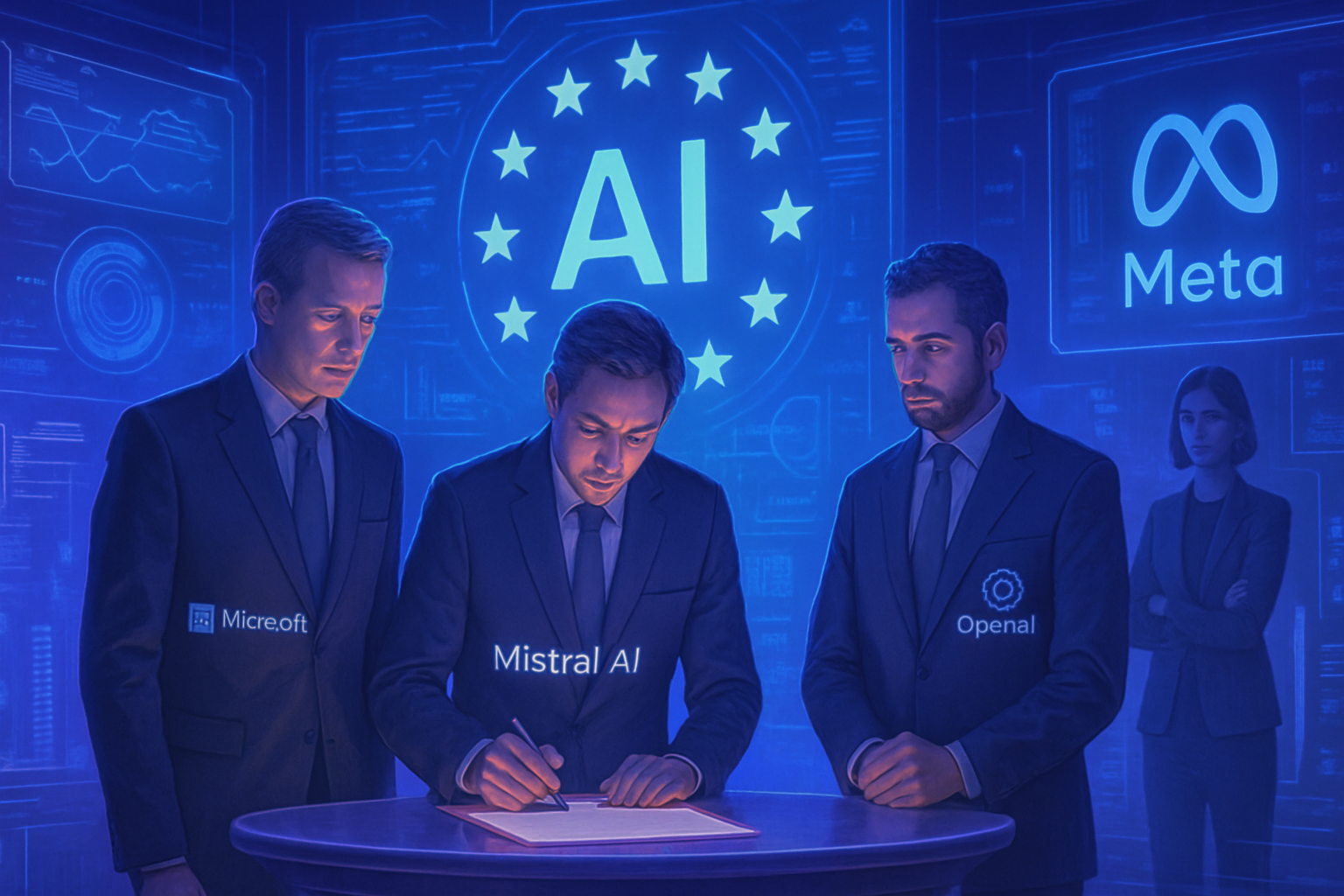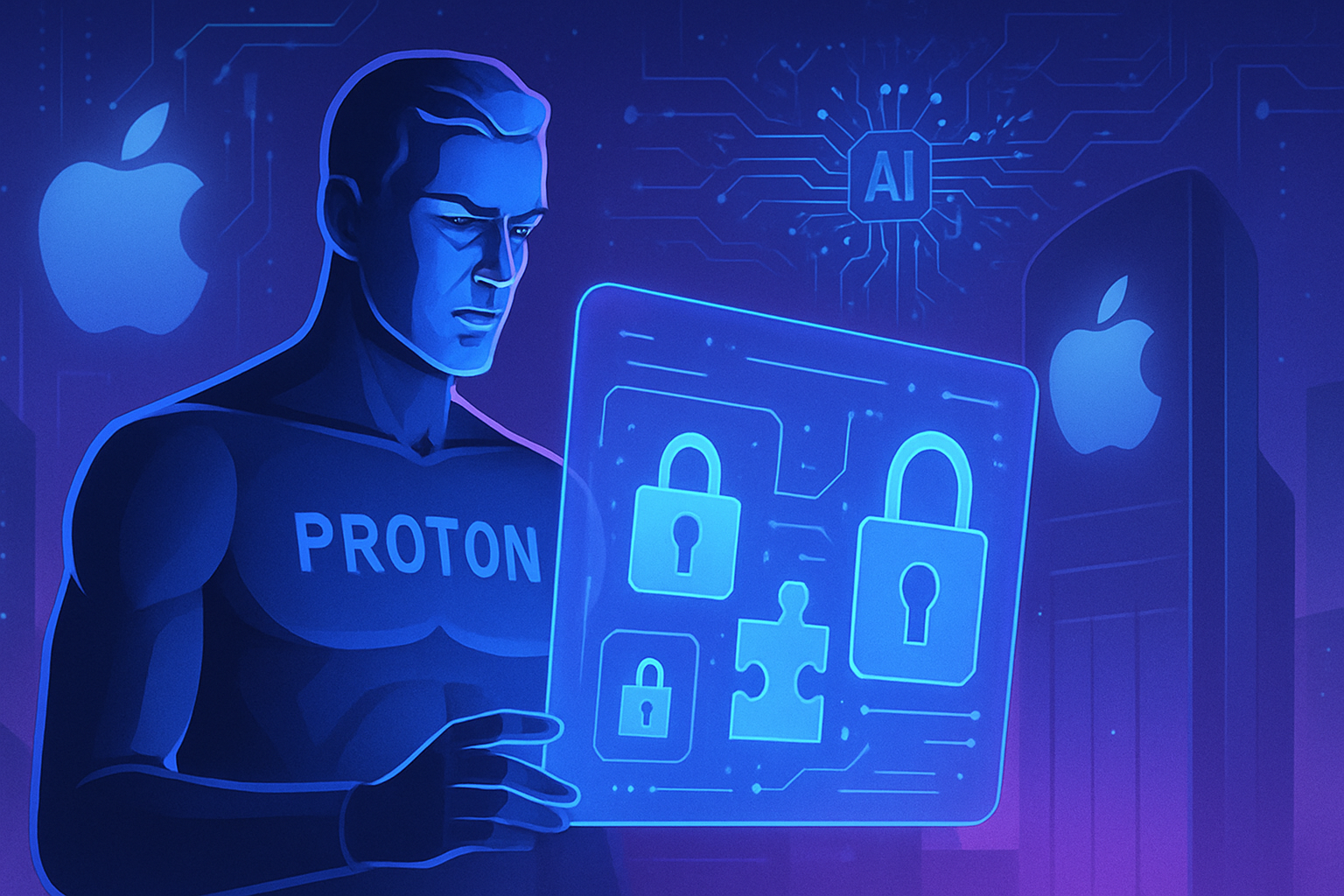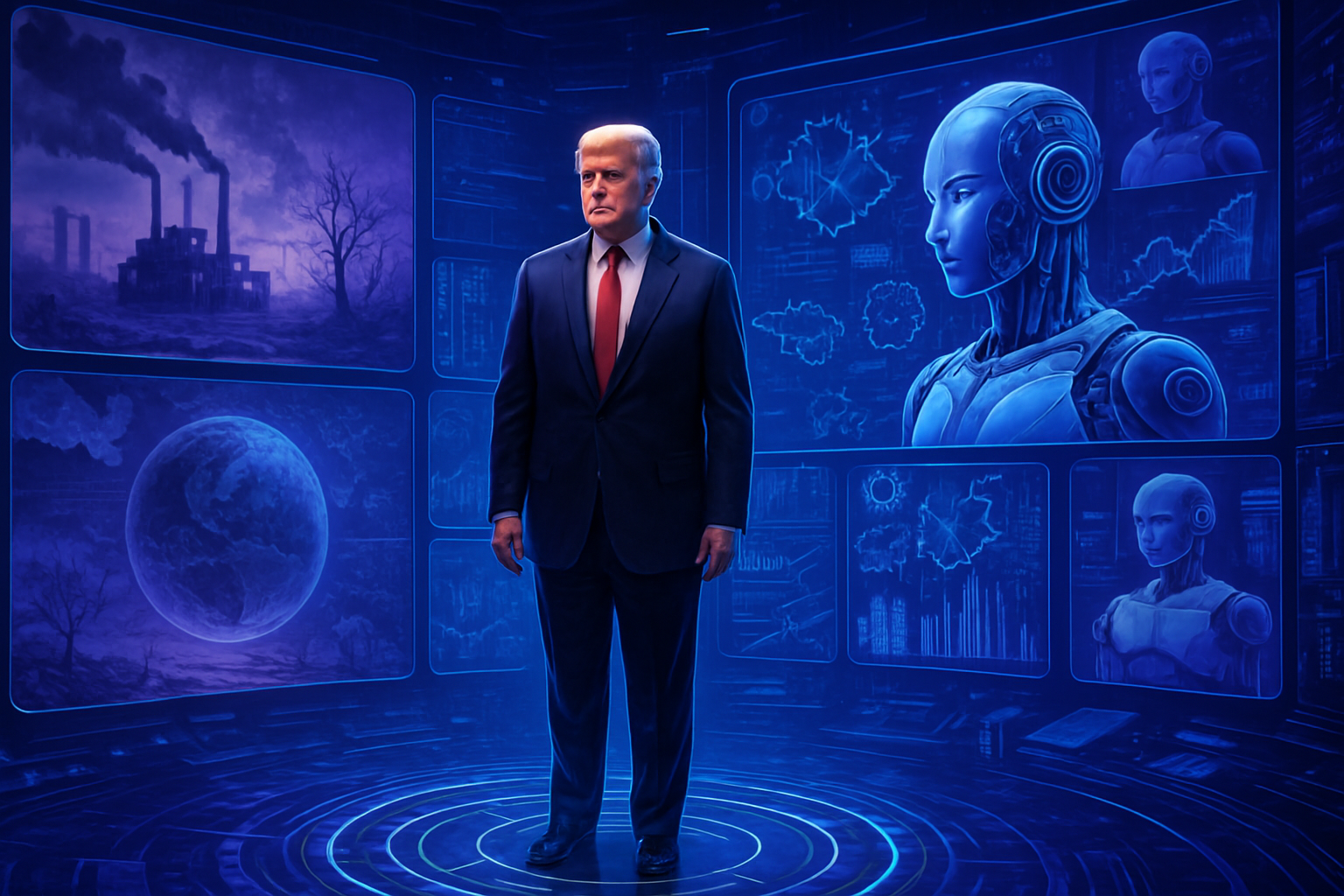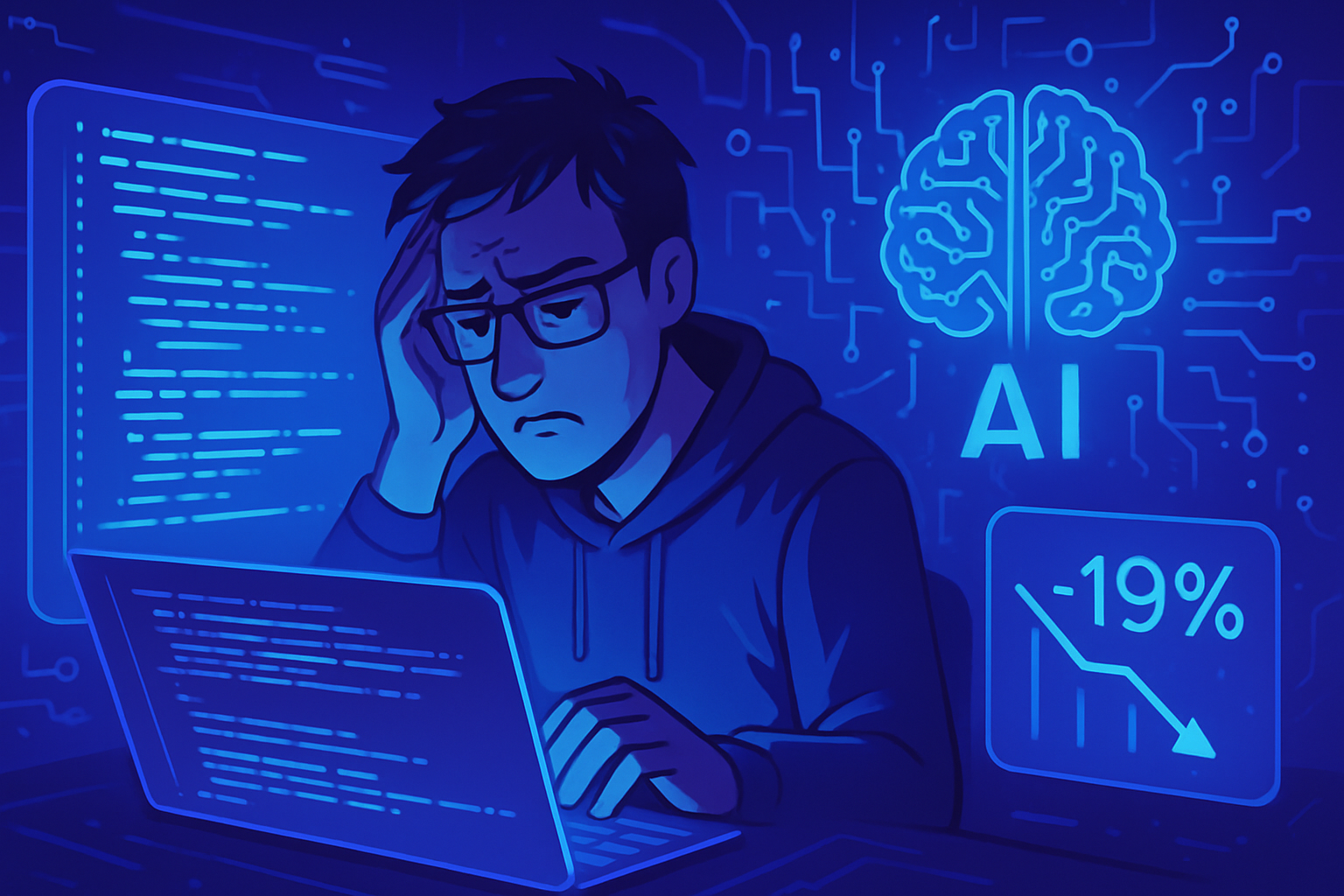The emergence of regulations for artificial intelligence in Europe marks a decisive turning point. Microsoft, Mistral AI, and OpenAI are preparing to position themselves in favor of beneficial regulation. The *AI Act* is only awaiting formal implementation to frame the practices of this rapidly evolving sector. In contrast, Meta appears to be on the sidelines and is vigorously criticizing the direction of this legislation. The *impact on the development* and ethics of AI raises fundamental questions. These tensions among industry giants define the future of artificial intelligence in Europe.
The legal framework for artificial intelligence in Europe
After nearly four years of intense debate, Europe is preparing to establish a regulatory framework for artificial intelligence. This project, known as the AI Act, is set to come into force on August 2, 2025, following several months of negotiations between industry players and governments. The publication of the regulatory text occurred on July 10, with revisions anticipated based on upcoming discussions.
Microsoft, Mistral AI, and OpenAI: anticipated signatures
Microsoft, Mistral AI, and OpenAI seem ready to support this legislation. Brad Smith, president of Microsoft, expressed his support for the AI Act, although its official signature is still pending. Microsoft’s support could pave the way for a shift in the regulation of artificial intelligence in Europe.
Mistral AI has also indicated its intention to sign the AI Act, demonstrating a proactive commitment to ethical and responsible practices in the development of AI technologies. OpenAI, for its part, recently reaffirmed its desire to collaborate with European authorities to establish a solid regulatory framework.
The erosion of misinformation thanks to the AI Act
The implementation of this regulation aims to limit abuses related to the use of AI, notably the spread of fake news on platforms such as Google Discover. The AI Act could thus transform the digital landscape and ensure a more ethical use of artificial intelligence.
The case of Meta: notable hesitations
In contrast, Meta remains on the sidelines, clearly opposing the AI Act. Joel Kaplan, the company’s leader, stated that Europe is “heading down the wrong path” regarding this regulation. According to him, the AI Act contains many uncertainties that could hinder the progress of artificial intelligence.
This stance from Meta raises concerns as other players like Google and Anthropic have also refrained from signing. The objections raised by Meta could lead to amplified consequences if they persist in the face of competitors’ commitments.
Regulatory perspectives and the future of AI in Europe
The regulatory framework of the AI Act must continuously evolve through negotiations with companies. Proactive players in signing this text could influence how artificial intelligence technologies will be developed in the future. Discussions around the AI Act are not limited to Europe, as global implications could be at stake, especially concerning trade agreements.
The repercussions of decisions made by these tech giants go far beyond Europe. Other countries might draw inspiration from this initiative to develop their own regulations. The debates on the security and ethics of artificial intelligence will continue to fuel conversations on a global scale, while the AI Act serves as a stepping stone toward a more structured and regulated future for AI technologies.
For more information on the subject, find the details regarding the regulation. The stakes of this regulation remain crucial as the integration of AI into our societies increases. Meta’s potential adherence to this initiative could have significant implications for the entire sector.
The experiences conducted by the FDA regarding guidelines on AI and machine learning could also offer valuable lessons for the relevant stakeholders. More information on this topic is available via this link.
Frequently asked questions
What is the main objective of European regulation on artificial intelligence?
The regulation aims to establish a legal framework for artificial intelligence, ensuring that companies developing these technologies adhere to ethical and safety standards.
When will the new regulation on artificial intelligence come into force?
The regulation is set to come into force on August 2, 2025, after its publication on July 10, 2023.
Which companies have announced their intention to sign the AI Act?
Microsoft, Mistral AI, and OpenAI have expressed their willingness to support and potentially sign the AI Act, while Meta has voiced criticism of this initiative.
Why are some companies like Meta opposed to the AI Act?
Meta, through its leader Joel Kaplan, has stated that the law contains too many uncertainties and fears it may hinder the development of artificial intelligence.
Does the AI Act apply only to European companies?
No, although the AI Act originates from Europe, it can also concern international companies like Microsoft and OpenAI that operate in the European market.
What impacts could the AI Act have on the use of artificial intelligence?
The regulation could limit certain uses of AI, particularly those deemed unethical, and aim to enhance transparency and accountability among companies.
How can companies prepare for the AI Act?
Companies need to evaluate their AI practices, ensure they comply with the principles outlined in the regulation, and potentially adjust their products and services.
Does the AI Act affect the development of AI by start-ups?
Yes, start-ups will also need to comply with the new regulation, which could influence their development and innovation strategies.





